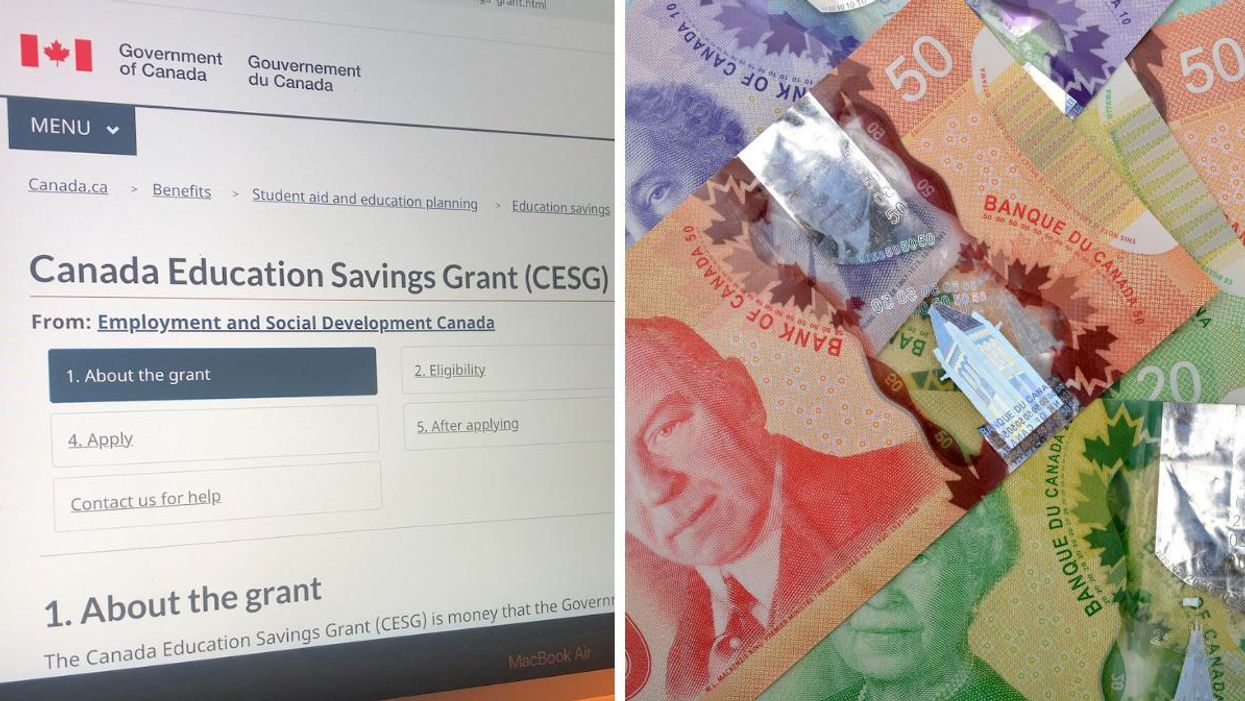Canadian Parents Can Get Up To $7.2K For Their Kids By Putting Money Into A Savings Plan
The feds want to help parents to invest in their child's future.💰
The federal government is offering eligible parents up to $7,200 to help them save for their child's future education.
If you haven't heard of it before, the Canada Education Savings Grant (CESG) is money that the government adds to a child's savings plan, to help them pay for post-secondary education when they're old enough.
The funding is available until the end of the calendar year that a child turns 17, although there are eligibility requirements for teens aged 16 and 17.
To qualify for the money, Canadian parents must open a Registered Education Savings Plan (RESP), which are specifically designed to save money for a child's future.
The CESG adds 20% to the first $2,500 made in contributions to an eligible savings plan each year, which means it's possible to get up to $500 for each year the account is open.
Exactly how much you get from the CESG depends on the contributions made into the account each year. If no money is put into the account during any given year, the plan holder is allowed to make up contributions in future years.
A child may also be eligible for an additional 10% to 20% from the CESG in their account, depending on their primary caregiver's income.
Who is eligible?
To qualify for the money from the feds, an adult must contribute to a child's RESP before the end of the calendar year in which they turn 15 years old.
It's possible to get it for teens aged 16 and 17 too, although there are additional terms.
The child must be a Canadian resident, have a valid Social Insurance Number and have an eligible RESP in their name.
Eligible low-income families who are unable to regularly contribute to a RESP can still access thousands of dollars in federal support for their kids' futures.
The Canada Learning Bond — also known as the CLB — offers up to $2,000 towards post-secondary education, without requiring any personal contributions from the account-holder's caregivers or family.
This article's cover image was used for illustrative purposes only.
- Canadian Parents Can Get Up To $2K From The Feds By Opening A ... ›
- The Canada Worker Lockdown Benefit Is Here & This Is Everything ... ›
- Feds Say Canada's COVID-19 Benefits Are Likely To Cost $7.4 ... ›
- Students In Canada Can Now Get Up To $2K From The Feds To Help Pay For Their Education - Narcity ›
- Families Can Get Almost $7,000 Via The Canada Child Benefit & Here's What You Can Spend It On - Narcity ›
- Students In Canada Can Get Up To $2K From A Federal Benefit To Pay For Post-Secondary Education - Narcity ›
